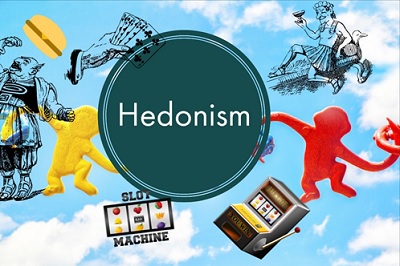
Source: kcpc.org
Hedonism is basically an ethical theory that says pleasure is the highest good and proper aim of human life. Epicurus was one of the most prominent proponents of this theory.
Here are some things you might not have known about hedonism:
Hedonism is not synonymous with selfishness but is inclusive of concern for others.
Hedonist philosophers are typically concerned with physical pleasure, but may also include mental or spiritual pleasures.
It was an ethical philosophy that originated in the 18th century BC in response to growing social chaos among competing schools of thought.
Advantage
According to the hedonistic principle, the satisfaction you get from pleasures is proportional to how much pleasure you get from them.
- There is no proper final goal in life.
- Hedonists claim that pleasure and pain are constant, but when you actually think about it, there are times in life when people experience more pleasure than pain. The hedonist philosophy doesn’t take into account the existence of suffering and anguish.
Disadvantage
Hedonism is that pleasure is not good in and of itself, but only good insofar as it assists us in attaining the other goods.
In the early Roman Empire period, Epicureanism was criticized for its hedonism and for implying a life of debauched self-indulgence.
Another criticism of hedonism is that happiness cannot be attained through pleasure alone. There are certain preconditions where happiness can be attained. Hedonists tend to ignore these preconditions.
An example of hedonism in companies is in Happy Monkeys by Daniel Pink.
The proper goal of life is not pleasure. Some people think that pleasure is the ultimate good and nothing else, but this does not make sense. If you think about it, someone who commits suicide because they have nothing else to live for is not going to be happy. Someone who spends his or her whole life trying to get rich is going to become unhappy when they find out that they can’t get everything they want out of life.
One more example of hedonism in an organization is seen in the ad statement, Coca-Cola “open happiness.”
The 2nd century Greek satirist, Lucian of Samosata, believed that pleasure was the only good and life without pleasure was not worth living.
The Epicurean school of philosophy taught that physical pleasures are the most important, but their moral philosophy also included ideas about how to develop and maintain friendships and how to deal with challenges presented by life events.
Conclusion
“The ultimate goal is to get the most happiness possible, which cannot be achieved through pleasure alone.”
Hedonists can have a positive effect on organizations, but they must keep in mind that pleasure is not the ultimate good and that it does not come naturally to everyone. Hedonism should be used to define sets of expectations for employees in an organization so that everyone can feel comfortable fulfilling these expectations.
Jyothi Prakash S
II MBA, DSCE
